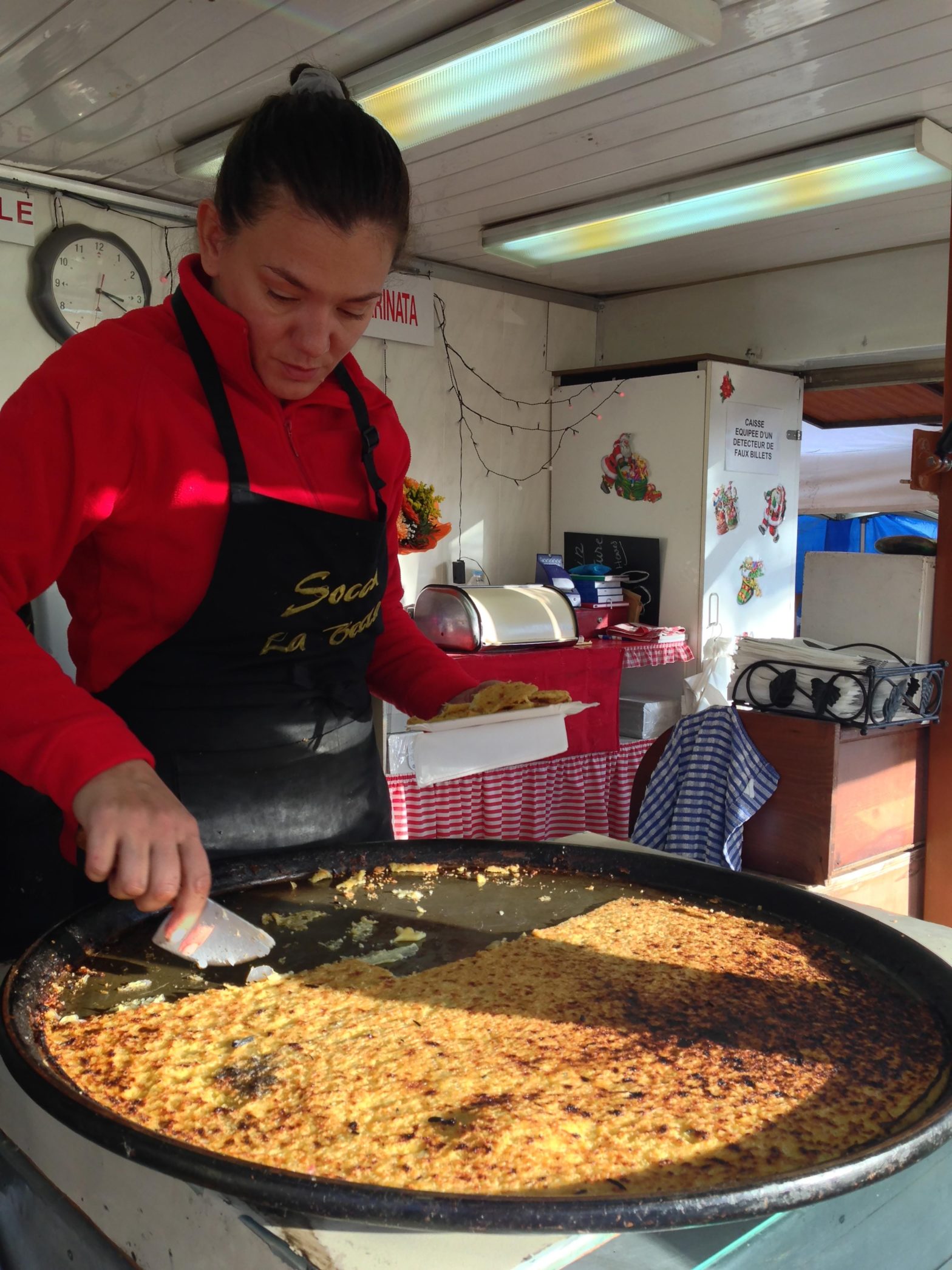![Socca is a chickpea pancake sizzled in a large copper vessel over a wood fire. [CHARLENE PETERS | More Content Now]](http://127.0.0.1/wordpress/wp-content/uploads/2022/01/ghows-DA-67dfe5da-e94a-10ce-e053-0100007f67c7-75aecf01-scaled.jpeg)
Nice, France’s fifth-largest city, has a storied past. Suffice to say its food, architecture and culture have been influenced by Greeks, Italians and Spaniards before ending up in the hands of the Emperor Napoleon III of France in 1860. Nice makes a worthy base for exploring the Cote d’Azur, with its combination of clean air from nearby mountains and sea spray from the Mediterranean coast.
I wholeheartedly began my immersion into this sunny French melting pot with a lesson in Niçoise.
In Nice, restaurants that have earned the certification Cuisine Nissarde may adorn their front doors with an official sticker to alert diners to a truly authentic menu. The recipes prepared are meant to preserve the area’s culinary traditions stemmed from economic struggles of years past, when head-to-tail cooking was essential and ingredients were more likely to come from the land rather than the sea. Lou Ballico is one such restaurant. In a nod to its Spanish-influenced food, the interior walls are filled with bull and bullfighting art.
Lunch began with a Niçoise version of a mesclun (which means “mess of everything”) salad, topped with Niçoise olives, celery, tomatoes and radishes. It was followed by a dish that typified Niçoise homemade cooking: daube du boeuf accompanied by delicious herb ravioli. Dessert, worth every calorie, was a torte de blette: Blette is a type of spinach the chef combined with sweet apples.
When in Nice, a promenade at sunset will allow you to absorb the exquisite beauty that surrounds you on all sides. But once the sun sets, you’ll want to head into the lounge at Nice’s most storied and stunning Hotel Negresco for a glass of wine and a carafe of ambiance. If luxury had a scent, it would be of polished burled wood, the kind that lines the bar at this historic five-star hotel, where one sip of a balanced and buttery grand cru Chablis will surely lead to another.
Food shopping is yet another luxurious activity, especially inside the majestic Patisserie Confiserie Henri Auer, a dreamy dollhouse filled with confections. Outside is a marketplace of fresh-cut blooms as well as bins of candied flowers for consumption.
A staple of street food in Nice is a chickpea pancake called socca, which is also a form of entertainment, as it transforms from a mushy batter to a magical snack, sizzled in a large copper vessel over a wood fire. Stuffed with savory socca, I burned off calories while perusing museums dedicated to two Nice-based French artists, Henri Matisse and Marc Chagall, courtesy of the city’s convenient and efficient hop-on, hop-off trolley, an inexpensive luxury on Nice’s winding and hilly back streets.
The next day, thanks to Nice’s friendly and helpful tourism office, I was treated to a tour of the region via minivan. In Cannes, I struck my best Angelina Jolie pose on the grand steps of its famed film festival theater. In Grasse, the perfume capital of the world, I sniffed a veritable bouquet of regional scents before making my purchase. Today, each time I spritz that bottle of jasmine and honeysuckle perfection, I am transported to the three spectacular days I spent on the inimitable Côte d’Azur.
— Charlene Peters travels the world to discover indigenous dishes to share with readers. She can be reached by email: siptripper@gmail.com.
Socca
Serves 8
• 1 liter water (4 cups plus 3 tablespoons)
• 1 1/3 cups chickpea flour
• 8 tablespoons olive oil
• 1 tablespoon fine salt
Pour the water, chickpea flour, olive oil and salt into a salad bowl. Beat briskly with a whisk to remove any lumps. Strain.
Heat a thickly oiled 20-inch diameter (approximately) copper or metal baking tray. When it is nice and hot, pour and spread the mixture in the tray (around 1/8-inch thick). Cook in a very hot oven, around 525 degrees.
Remove the tray from the oven when the pastry is golden and crusty, and even slightly burnt in places.
Heat some oil in a non-stick frying pan and cook both sides like a pancake.
Cut into small pieces, season with pepper and serve quickly.

This article originally appeared on Santa Rosa Press Gazette: Taste of Travel: Soaking up the sun, socca in France
